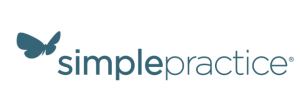I'm excited to introduce you to the kick off of a new series: Therapist Turned Entrepreneur and introduce to you a mental health professional who transformed his training into creating mental health related businesses. Howard Spector is a therapist turned entrepreneur and is the creator of TrackYourHours.com and more recently, SimplePractice management system. Here is his story:
Tell us about your background (college experience and degree, career beginnings, etc.).
Wow, big question. I’ve had a number of careers as I tried to find the one that really fit. I attended USC for undergrad, and then after some years working in the entertainment industry found myself in Palo Alto while my wife was doing her medical residency at Stanford. I was always a bit of a technology geek and really connected with what was happening in Silicon Valley. We eventually ended up back in Los Angeles where I had some success with a number of technology companies. Then one day, I realized how disconnected I felt from the work I was doing and decided that I needed to reconnect with what was important to me, and also that a major career change was part of that. There was a particular school, Pacifica Graduate Institute, that I had always wanted to attend. Pacifica has a unique program where you basically live there for 3 days a month and are immersed in this wonderfully rich world of depth psychology. When I began school there, it felt like coming home. It was one of the most important experiences in my life, and I am very grateful for it.
With your business savvy and drive, you could have gone in many different directions. Why did you decide to apply your expertise to the mental health profession?
After graduating from Pacifica, I was doing my internship in California, and the Board of Behavioral Sciences (BBS) has very confusing rules for how you need to accrue, track, and report your 3000 hours of clinical experience. After fumbling around with a complex spreadsheet, I realized that this whole process would be better served by a web-based product. So I developed a product called TrackYourHours. It had all the BBS rules and forms built in, and it turned into a very sophisticated piece of software that was simple to use. It caught on quickly, and thousands and thousands of pre-license clinicians now use it. So that was where the entrepreneur in me really kicked in - I saw a need and filled it.
How did you come to develop the management system SimplePractice?
I was getting close to completing my 3000 hours of training and started to look at practice management products to find one I would want to use. To be honest, I was very unimpressed by what was out there. Products were either outdated and just horrific to look at or too complex for me. I wanted something simple and intuitive. So I decided to build my own.
 You’ve had tremendous success with your product. Explain some specific things you’ve been able to achieve with SimplePractice.
You’ve had tremendous success with your product. Explain some specific things you’ve been able to achieve with SimplePractice.
The most important thing for me is that our customers love our product for the reasons we set out to achieve - it’s simple and intuitive. I am also very proud of our team. We work insane hours to make sure we are adding the necessary features to our product so we can fulfill our promise to our customers. We are able to innovate very efficiently and are able to build out our product in ways that keeps new features well integrated and intuitive, as opposed to just slapping things on top of one another.
One of your main messages is the idea of “counselor as entrepreneur.” Why is it important for solo health practitioners to think of themselves as entrepreneurs? What are some ways that they can get into that mindset?
I don’t think this is limited to solo practitioners; it applies to anyone in any setting. I think the message that “you are an entrepreneur” provides the necessary reframe for this community. Being called to this special work is a gift, but that doesn’t mean this melding of art and science is not a business. It is very much a business, and one cannot survive and thrive by ignoring that. I want these health and wellness practitioners to embrace the business part of their practice and understand that as an entrepreneur/small business owner, there are things they can do to have greater success - and that that's ok.
One of our interests here at Private Practice Toolbox is helping counselors generate income in ways other than seeing clients. We’ve talked about speaking, writing, and teaching, but as of yet haven’t discussed software creation and development. Is there any specific advice or insight you can offer to tech-savvy clinicians thinking of venturing into that realm?
The first thing that comes to mind is that developing software is a lot harder than it looks. There is so much detail work that has to be attended to, and there is no gray area; software is black and white. There are so many use cases for something as seemingly simple as recovering a lost password. For example, do you click on a ‘forgot password’ link and then send the user to a page to enter some information - what information? What if the user enters it wrong? Is there an error message? Where? What does it say? The list goes on…and on…and on.
I don't say this to be discouraging. I say it because based on my experience talking with customers, most don’t realize the work it takes to develop even mediocre software. So my advice is this: If you have an idea, by all means, pursue it. If it’s software-related, then find someone to work with who has experience developing software. And be prepared to spend money on good developers and designers. My mom has this great saying: “Cheap is expensive.” When it comes to developing software, especially software in the health market where there are significant security requirements needed to protect patient health information, don’t be cheap.
To recap: Follow your dreams and passions, and if that happens to be developing software, then understand the costs of time and money it takes to develop something valuable.
Not only do you have an innovative software program, but through your company blog, you are also involved in educating clinicians on how to best run their practice from a business standpoint. Why is it important for you to share your wisdom and skills?
Because I am incredibly passionate about this work. I have some insights into this field because I trained as a clinician, and I want this community to embrace the business side of their practice. The services clinicians provide are invaluable, and they should be well compensated for all the time they put into getting educated and trained. The more they think of themselves as entrepreneurs, and the more they can see the parallel between other industries and theirs, the more it will help them. I think I have more to offer than just a great software product, and if I can help clinicians, even ones that don't use SimplePractice, then that is awesome.
Need help blogging? Join my ongoing therapist blog challenge!


As healers, we genuinely like to do our work. Guiding clients through the therapy process and seeing them make progress is why we do what we do. But if you're in private practice, you know there's a lot going on in the back end and that it's crucial to run an efficient and organized business.